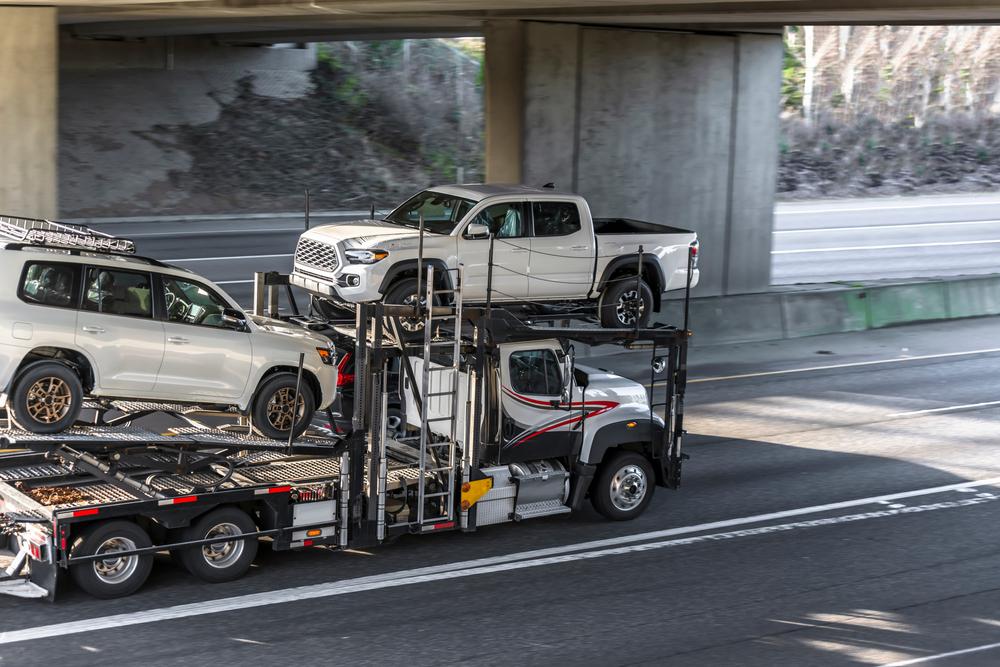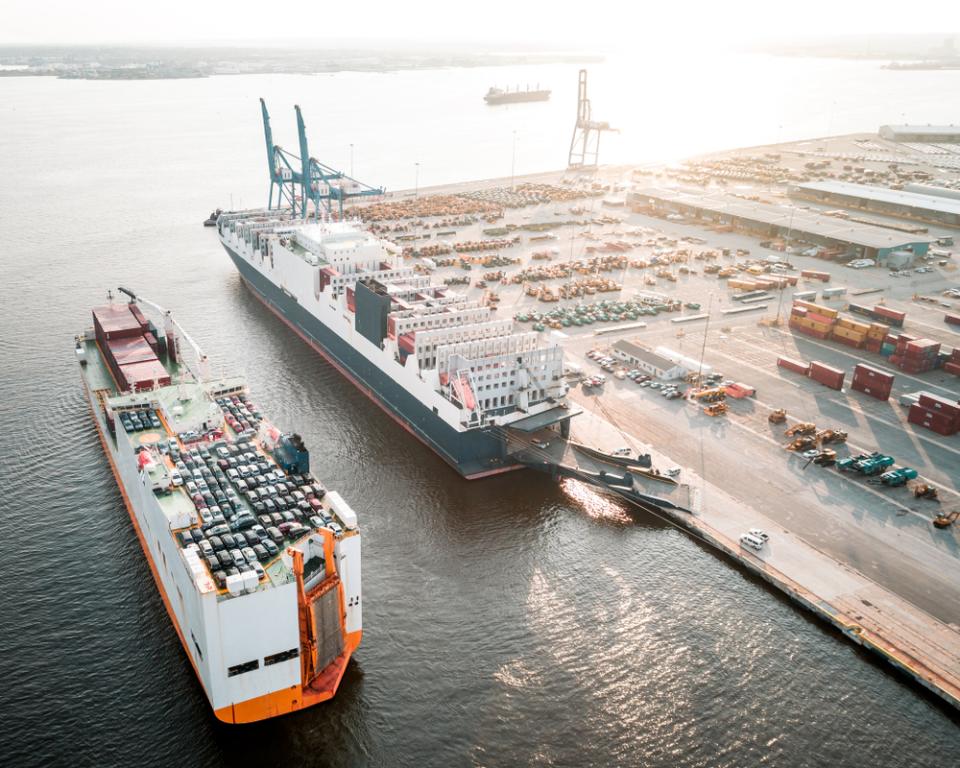
When it comes to shipping your vehicle, understanding who determines the cost of car shipping is crucial for planning and budgeting. Primarily, the cost is set by a combination of car shipping companies, influenced by market demand and governed by regulatory bodies. These entities consider several key factors: the distance your car needs to travel, the type of vehicle, the choice between open or enclosed transport, seasonal variations, fluctuating fuel prices, and regulatory fees. Let’s delve deeper into how these elements blend to form your car shipping quote.
Role of Shipping Companies
At the heart of car shipping costs are the auto transport companies themselves. These businesses calculate prices based on the operational expenses they incur, including fuel, maintenance, driver salaries, and insurance. They also factor in the type of service offered—standard transport might cost less than specialized enclosed transport, designed for luxury or classic cars that require extra protection.
Competition among car shipping companies also significantly influences pricing. In a bid to attract customers, companies may offer competitive rates while still aiming to maintain a profit margin. However, the lowest price doesn’t always guarantee the best service. High-quality customer service, reliability, and additional offerings like door-to-door delivery or expedited shipping can also impact the final cost. It’s a delicate balance between competitive pricing and the value of the services provided.

Market Demand and Seasonality
The principles of supply and demand play a pivotal role in determining auto transport prices. During peak seasons, when many people are moving or buying cars online from distant locations, the demand for car shipping services spikes. This increased demand can lead to higher prices, especially on popular routes. Conversely, during slower periods, prices may decrease as companies vie to attract a smaller pool of customers.
Seasonality affects car transport costs too. Summer months often see a surge in auto transport due to people relocating or buying cars for the new season. Winter, especially in areas with harsh weather, can see a dip in demand but also presents challenges that might increase costs, such as slower delivery times or additional precautions for safe transport.
The interplay between market demand, seasonality, and route popularity ensures that car shipping costs remain dynamic. Understanding these factors can help customers plan their auto transport needs more effectively, potentially saving money by choosing off-peak times or less demanded routes for their car shipping needs.
Influence of Fuel Prices and Regulatory Fees
The cost to ship a car is not immune to the fluctuations of fuel prices. As fuel costs rise, so do the operational expenses for an auto transport company. This increase is often passed on to the consumer in the form of higher car shipping prices. Fuel is a significant component of a shipping company's budget, and its volatility can make the auto transport price factors unpredictable at times.
In addition to fuel prices, regulatory fees also play a crucial role in determining the final cost of shipping a car. These fees can include tolls, taxes, and other charges imposed by local, state, and federal governments. Shipping companies must navigate through a maze of regulations, which can vary significantly from one jurisdiction to another, impacting the overall shipping costs. Enclosed car transport, for instance, might attract different regulatory fees compared to standard open transport, given the additional protections and insurance requirements involved.
These external factors—fuel prices and regulatory fees—are outside the direct control of both the customer and the shipping company. However, they are critical components of the comprehensive car shipping rates you're quoted. Understanding these influences can help set realistic expectations about the fluctuating nature of auto transport prices.

How to Estimate Your Car Shipping Costs
Estimating the cost of shipping your vehicle can seem daunting at first, but understanding the key factors that affect pricing can simplify the process. To get a ballpark figure, you can use online calculators provided by auto shipping companies. These tools often require basic information about your shipment, such as the make and model of your car, the shipping distance, and your preferred transport type—open or enclosed.
For a more accurate quote, it's advisable to contact several car transport companies directly. This allows you to discuss your specific needs and get detailed estimates that consider the current market conditions, including the seasonality and the current fuel prices. Comparing quotes from different companies not only gives you a sense of the market rate but also offers insights into the range of services offered.
When requesting quotes, ensure you understand what's included in the price. Ask about insurance coverage, potential additional fees, and any guarantees on delivery times. Transparency at this stage can help avoid unexpected costs later on.
Understanding Car Shipping Costs with A1 Auto Transport
When planning to ship a car, understanding the associated costs is crucial. A1 Auto Transport offers a variety of shipping services tailored to meet different needs and preferences, with prices influenced by several key factors.
- Distance and Route: The distance between the pickup and delivery locations significantly affects the cost. Longer distances generally result in higher prices, but the cost per mile decreases as the distance increases. Additionally, the popularity and accessibility of the route can impact the price, with more common routes typically costing less due to higher demand and carrier availability.
- Vehicle Type and Size: Larger vehicles, such as SUVs and trucks, take up more space on the carrier and weigh more, leading to higher shipping costs compared to compact cars or sedans. Special vehicles, like luxury cars or motorcycles, may require special handling or enclosed transport for added protection, further influencing the cost.
- Transport Type: Open transport is the most cost-effective option for shipping cars. It's suitable for most vehicles but exposes them to the elements during transit. Enclosed transport, offering protection from weather and road debris, is recommended for high-value, luxury, or classic cars, albeit at a higher cost.
- Seasonality: Prices can fluctuate based on the time of year. Peak seasons, such as summer and the beginning of winter, see higher demand for car shipping services, driving up prices. Planning your shipment during off-peak times can lead to more favorable rates.
- Additional Services: Services such as door-to-door pickup and delivery offer convenience but can increase the overall cost compared to terminal-to-terminal shipping, where the customer is responsible for getting the vehicle to and from designated locations.
- Fuel Prices and Regulatory Fees: Fluctuating fuel prices and varying tolls, taxes, and regulatory fees across states can also affect the final shipping cost.
When considering car shipping with A1 Auto Transport, it's essential to get a personalized quote that takes into account your specific needs and circumstances. This allows for more accurate budgeting and ensures you understand the factors contributing to the cost. Always inquire about what's included in the quoted price to avoid unexpected charges and ensure the shipping process meets your expectations.

Conclusion
Navigating the intricacies of car shipping costs requires an understanding of the various stakeholders involved—from auto transport companies to regulatory bodies—and the factors they consider when determining prices. Fuel prices and regulatory fees add layers of complexity, making shipping costs susceptible to fluctuations. However, by doing your homework and obtaining multiple quotes, you can gain a clearer picture of the potential expenses and make an informed decision.
Remember, the cheapest option isn't always the best. Quality of service, reliability, and the peace of mind that comes with knowing your vehicle is in good hands can be worth the extra investment. When planning your car transport, consider all these elements to ensure a smooth and successful shipping experience.
Ready to ship your car? Contact A1 Auto Transport for a personalized quote and let us make your auto transport experience as seamless as possible. With our knowledge and expertise, we'll help you navigate the car shipping process, ensuring your vehicle arrives safely and efficiently at its destination.






 Share on Facebook
Share on Facebook Share on LinkedIn
Share on LinkedIn Share on Twitter
Share on Twitter




 Google
Google  Instagram
Instagram  Trustpilot
Trustpilot 



